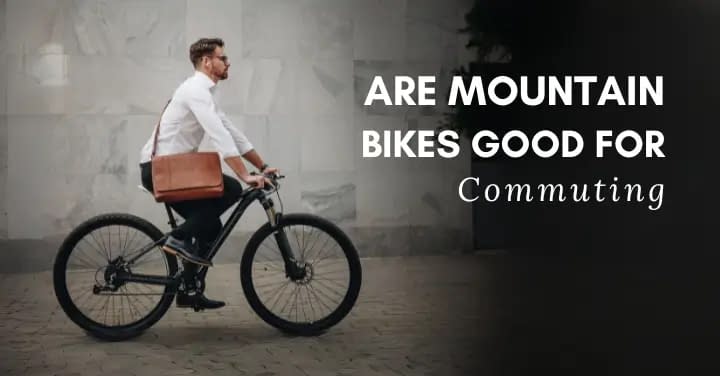Mountain bikes are made to tackle rough terrain with their sturdy frames, wide knobby tires, and shock-absorbing suspension. While they’re awesome for off-road adventures, Are Mountain Bikes Good for Commuting?
Sure, you can commute on a mountain bike. But before you do, consider the pros and cons. Think about how the gears, tires, carrying space, comfort, and upkeep compare to bikes built for the road.
Let’s see if a mountain bike makes sense for your commute or if it’s better left for weekend adventures.
Pros of Commuter Mountain Bikes
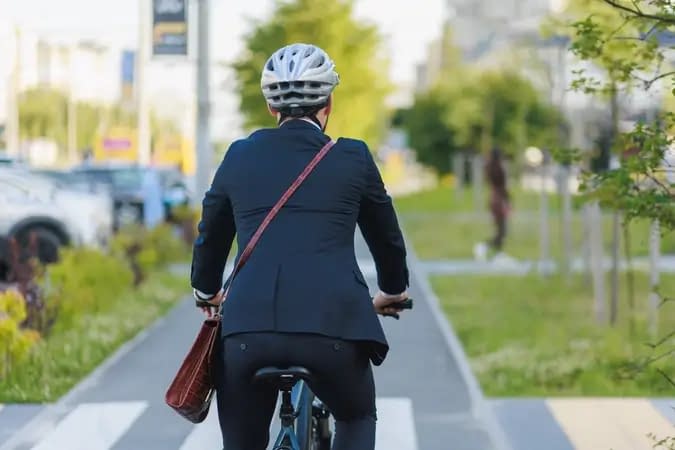
Mountain bikes are built tough. That means all the potholes, curbs, and random junk in the road won’t destroy your bike on your way to work. The rugged frame and suspension on a mountain bike will absorb bumps and impacts that could damage a normal road bike.
The upright geometry of a mountain bike provides a comfortable riding position with good visibility of the road. Plus, sitting upright makes it way easier to see what’s happening around you in traffic. The higher handlebars allow you to sit upright rather than hunched over the bike.
Mountain bikes usually have disc brakes, which stop super well, even in the rain. Knowing you can stop quickly, especially when some driver cuts you off, is a huge relief on a daily commute.
So yeah, mountain bikes are awesome for city riding. They’re tough, comfy to ride, help you see better, and can bring you to a quick stop. Perfect when you’re dealing with the daily grind of your commute.
Cons of Commuter Mountain Bikes
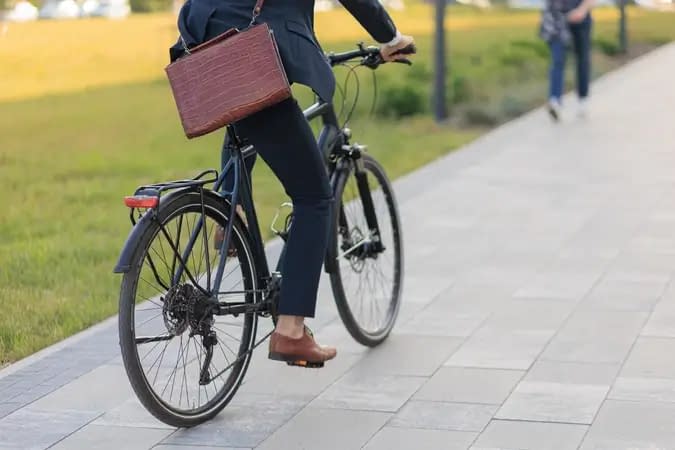
Mountain bikes are cool for city streets, but they’re not perfect. Here’s the deal:
- Heavier and slower: Mountain bikes are awesome for bumpy city streets, but let’s be real, they’re not built for speed. They’re heavy, and that extra weight means you’ll have to work way harder to get up to speed and keep those pedals turning.
- Require more energy to pedal: Mountain bike tires, even the smoother ones feel like they have extra grip compared to the skinny tires on a road bike. Plus, that comfy upright position isn’t exactly helping you cut through the wind.
- Suspension can be unnecessary on paved roads: The front and sometimes rear suspension on a mountain bike soaks up bumps and vibration from rough terrain. But this suspension absorbs some of your pedaling energy when riding on smooth roads. The suspension also adds weight, another factor making mountain bikes slower on pavement.
So mountain bikes are great for shorter city commutes, but if you’re riding longer distances, they can really wear you out compared to a lightweight road bike. If you want a bike that’s fast on pavement but can still handle a bit of rough stuff, look into cyclocross or gravel bikes – they might be the perfect middle ground.
Gearing Considerations
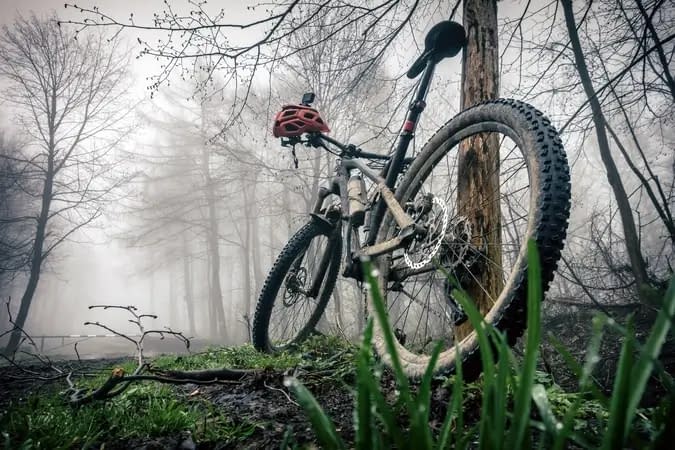
Mountain bikes are awesome because their gears help you conquer anything from rough trails to those awful city hills. Think of those super low gears as your secret weapon for climbing climbs, even after a long day.
Some riders even switch out parts to make their mountain bikes easier to maintain for everyday commuting. But honestly, most people are super happy to have those extra low gears when that killer hill shows up on their way home. All in all, mountain bikes are great for hilly commutes, just keep in mind that you might need a bit of extra maintenance.
Tires for Commuting
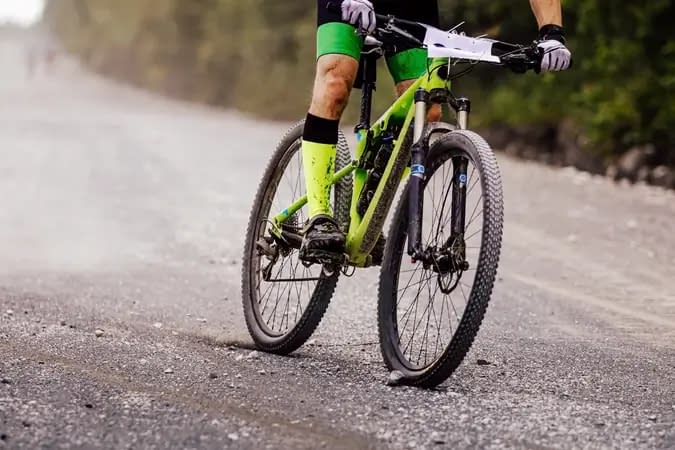
When using a mountain bike for commuting, tire choice is an important consideration. Those big, knobby mountain bike tires are awesome for trails, but on the road? They feel like they’re slowing you down big time. Switching those out for smoother tires makes a HUGE difference in commuting. You’ll be amazed how much easier it is to pedal!
For commuting duties, many riders will swap out knobby tires for smoother street tread. Semi-slick tires are a good middle ground – they have a bit of tread for handling corners and wet roads, but not so much that they drag you down. If you don’t care about ultimate speed, they’re a good choice. Totally slick tires fly on pavement but can get slippery in the rain.
Prioritizing low rolling resistance, puncture protection, and grip will provide a better commuting experience on a mountain bike. The right tires make pedaling effortless compared to slow and sluggish knobby tires.
Comfort and Ergonomics
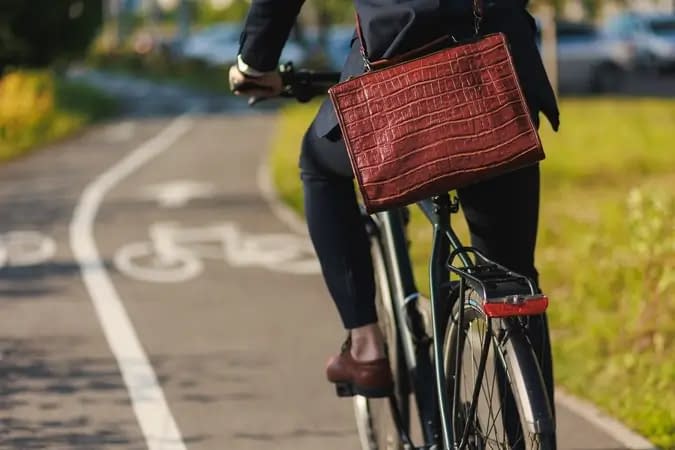
The best thing about mountain bikes for commuting? They’re actually comfortable! Those handlebars are way higher, so you don’t have to hunch over like you do on a road bike. It’s so much easier on your back and neck, especially for shorter rides where going super fast isn’t your main goal.
Plus, a lot of mountain bikes have suspension in the front, which is amazing for soaking up all those annoying bumps and potholes on city streets. You’ll be cruising a long way more comfortably, especially if your commute is longer. Some mountain bikes even have suspension on the back wheel for extra plushness!
Of course, even with that comfy position and suspension, you still need your bike to fit you properly. Make sure your seat is high enough for your legs and your handlebars aren’t causing any weird stretches or strains. A bike that feels right makes a world of difference – no more achy back or sore hands means you can actually enjoy the ride!
Carrying Loads

The easiest way to carry stuff is with a rack and panniers on the back. Waterproof bags on a rack keep your things dry, and since they’re low on the bike, it feels more stable.
Another cool spot for gear is a frame bag tucked inside that big triangle of your bike. Stash your toolkit, food, or even a laptop in there. Backpacks work too but you might get a little sweaty in warmer weather. Handlebar bags are perfect for small essentials.
Just remember, your mountain bike will feel different when it’s loaded up, especially if you’re used to hitting the trails. A heavy backpack might make the front end feel bulky, and those panniers in the back can make steering a little slower. But don’t worry – with a bit of practice, you’ll be hauling a decent amount of stuff on your commute just fine. Just try not to overload it and keep the weight even on both sides.
Maintenance Considerations
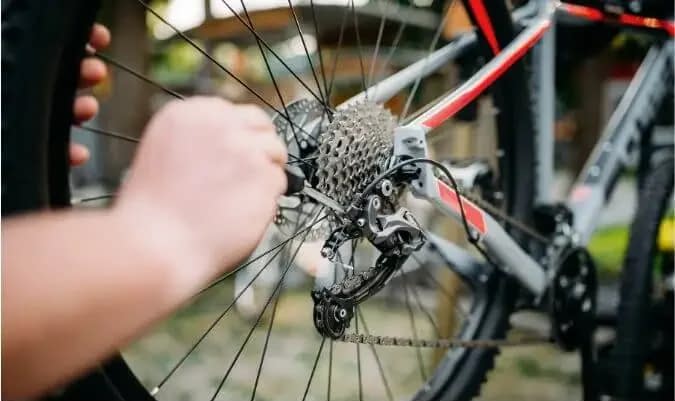
Mountain bikes experience more wear and tear when used for commuting compared to recreational riding. This requires paying careful attention to maintenance to keep the bike running smoothly and avoid breakdowns.
Staying on maintenance tasks will keep a commuter mountain bike running reliably for countless miles. It’s worth the small amount of extra effort to avoid being stranded with mechanical issues on the way to or from work.
Want to ditch the pavement and explore rugged trails? Learn about mountain bike uses and discover the potential adventures that await! Mountain bikes are designed to conquer rough terrain with ease, offering a thrilling workout while immersing you in nature. From adrenaline-pumping descents to scenic cross-country rides, mountain biking provides a unique way to experience the outdoors.
Security Concerns
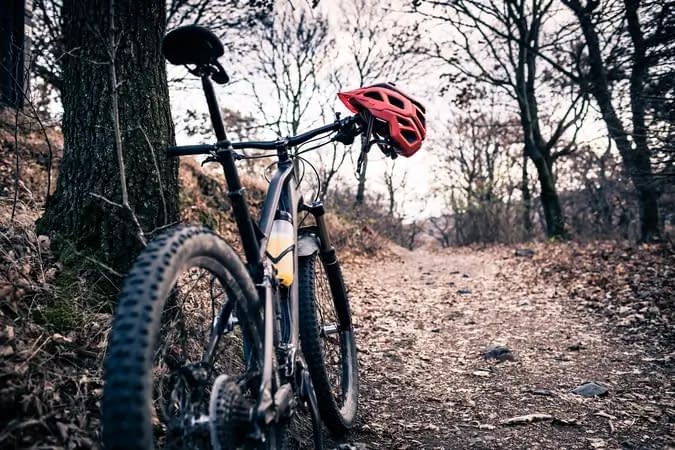
When using a mountain bike for commuting, security is an important consideration. Mountain bikes, especially higher-end models, can be an attractive target for bike thieves. Here are some tips to help keep your commuter mountain bike secure:
- Use strong locks: Don’t skimp on security! A solid U-lock and a chain lock are your best friends. For maximum security, always lock your bike through the frame and both wheels. Just locking the front wheel is asking for trouble. Think of it as extra security against losing your sweet ride.
- Engrave bike for identification: Engrave your bike’s frame with your driver’s license number. It’s like branding your bike – if it gets stolen, it’s easier to prove it’s yours. There are even bike registries where you can record that info for extra backup.
- Consider insurance options: Sometimes, even the best locks aren’t enough. Find out if your homeowners or renters insurance covers bikes. If not, consider getting specific bike insurance. It’s a small price to pay, considering what it could save you.
- Use secure parking: At home and work, try to lock up your bike inside whenever possible. If you have to park it outside, choose a super visible spot, preferably with cameras and a bike rack. Don’t leave it somewhere dark and lonely.
A little extra effort can go a long way in keeping your mountain bike safe. Taking precautions with locks, parking, engraving, and insurance can help deter thieves and provide recourse if your commuter mountain bike is stolen. With proper security habits, you can feel at ease riding your mountain bike to work or around town.
Conclusion: Are Mountain Bikes Good for Commuting?
Mountain bikes are a good option for commuting if your route includes rough terrain or poor road conditions. Their sturdy build and wide tires can handle it. However, they are less efficient on smooth roads. For longer commutes on pavement, consider a road or hybrid bike for a faster, less tiring ride.
